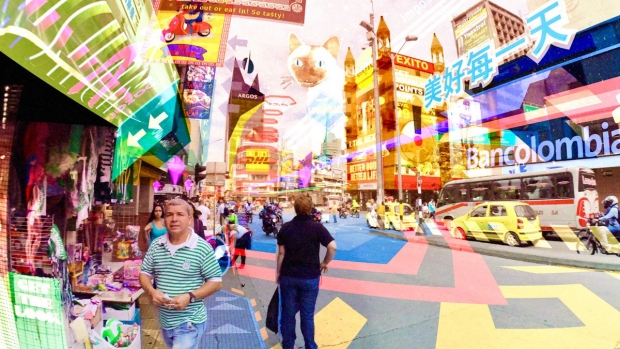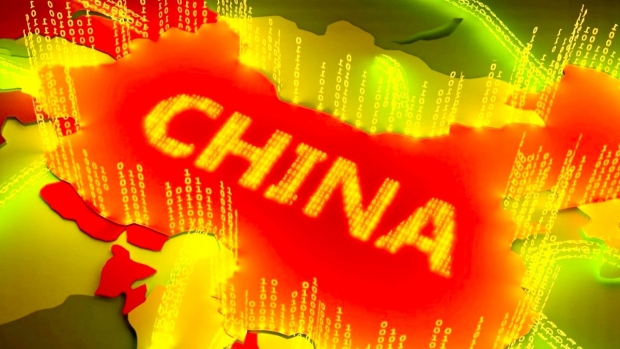Everything, everywhere, all at once.
“The Metaverse” is a fashionable focus of fanfare and fear. (See what I did there?)
One the one hand, you have utopian visions of harmonious digital ecosystems: as awkwardly pitched in Mark Zuckerberg’s idealized Connect 2021 presentation.
On the other hand, you have dystopian predictions of discordant digital environments: as vividly portrayed in Keiichi Matsuda’s wry 2016 short film, HYPER-REALITY.
Many tech evangelists preach the gospel of “One Metaverse” - a fantasy that VR pioneer Tony Parisi leads with in his “Seven Rules of the Metaverse:”
- Rule #1. There is only one Metaverse.
- Rule #2: The Metaverse is for everyone.
- Rule #3: Nobody controls the Metaverse.
- Rule #4: The Metaverse is open.
- Rule #5: The Metaverse is hardware-independent.
- Rule #6: The Metaverse is a Network.
- Rule #7: The Metaverse is the Internet.
Axioms such as Tony’s are remarkably (perhaps willfully) blindered, given the divisive influence of commerce, culture & politics upon the world in general - and upon the Internet in particular.
As opposed to pipe dreams of “The Metaverse,” I think we face the virtual reality of a multiverse: a dogpile of incompatible, overlapping metaverses staking out divergent commercial, cultural and political claims, within and between nations.
The illusion of interoperability
The term “interoperability” trips easily off the tongues of tech titans. But if you want to forecast how compatible and portable things will be in the metaverse, consider how compatible and portable things are now:
“Everyone dreams about features that are not going to happen in the short term. My favorite one is ‘interoperability:’ you should be able to go through all virtual worlds carrying with you what you have got in one into the other ones. All XR brands talk about ‘building the metaverse together’ as their core mission. And that’s amazing, I love it. Unluckily, in the last 12 months it has happened to me that on two platforms I tried to make a reference to another competitor platform in the environment (a little reference), and I was asked to remove it otherwise my experience would have been removed.” - The Ghost Howls
As Wired pointedly observed in their article, The Metaverse Land Rush Is An Illusion: “Services like Meta’s Horizon Worlds and Microsoft’s Mesh don’t interact with each other; they’re just separate apps.”
Much as Facebook’s acquisition of Oculus in 2014 sparked a VR (fool’s) gold rush, Facebook’s rebranding as Meta in 2021 lit a fire under competitive companies and countries eager to mark their territory in “The Metaverse.” Microsoft responded to Facebook’s announcement with a big one of their own this year: the $68.7 billion all-cash acquisition of Activision.
Microsoft CEO Satya Nadella acknowledges that this gaming move is ultimately a metaverse play, consistent with analysts such as Forrester who espouse that “immersive gaming platforms such as FORTNITE, ROBLOX and THE SANDBOX are obvious on-ramps to the imagined metaverse.” (Apparently, everyone missed a key takeaway from VR that the low-hanging fruit of gamers does not extrapolate into mass market adoption by civilians. Freak and geeks make great first adopters but poor Pied Pipers.)
To his credit, Nadella states the obvious when discussing the Activision deal: “When we think about our vision for what a metaverse can be, we believe there won’t be a single, centralized metaverse.” On that note, Nadella dangles the opportunity for creators and developers to construct bespoke virtual worlds, free from the control of any given company.
Not to be outdone, Mark Zuckerberg declares of his own metaversal aspirations: “We’ll build it together.” While that sounds all cozy and collaborative on the surface, a quick check of Facebook/Meta’s Terms of Service tips you off to the fact that - in addition to providing free labor & content - you effectively (and currently) grant…
“…a non-exclusive, transferable, sub-licensable, royalty-free, and worldwide license to host, use, distribute, modify, run, copy, publicly perform or display, translate, and create derivative works of your content.”
In other words: if your contribution to Mark’s Meta-verse goes viral, he can create a streaming series based on your life rights and intellectual property, with no royalties to you. You are beholden to the platform.
If you are paid royalties on your content, you’re subject to arcane algorithms that favor the house (ask any YouTuber). And as Keiichi Matsuda and The Ghost Howls observe, good luck if you ever try to migrate or merge loyalties. In the Attention Economy, corporations have a vested interest in keeping you vested.
Lack of interoperability is not merely a consequence of corporate strategy, but a practical issue as well. NFT aficionados salivate over the prospect of digital asset portability between different game worlds via tokenized marketplaces, but few delve into the complex commercial and legal aspects. It takes time and money for a game developer to rig an external asset to work in their game… and in exchange for what? Complaints and lawsuits?
Nevertheless, folks like Epic Games CEO Tim Sweeney wax optimistic:
“I think we can build this open version of the metaverse over the next decade on the foundation of open systems, open standards, and companies being willing to work together on the basis of respecting their mutual customer relationships. You can come in with an account from one ecosystem and play in another, and everybody just respects those relationships. And there’s a healthy competition for every facet of the ecosystem. That’s the thing that the world had in the early days of the web. But that’s been torn down by the walled gardens and their monopolization processes.”
Sweeney continues:
“I also think you can’t have a free world if you don’t have freedom online and freedom on platforms. If you have two corporations controlling all world discourse and kowtowing to governments – especially oppressive governments – to act as agents on their behalf and spy on users and sources of opinion and dissent, then I think the world you end up with isn’t one we’d want to live in. I think it would be quite a horrible place.”
Which brings us to…
Great Walled Gardens
In a December 2021 Dao Insights interview, HTC China President Alvin Graylin amusingly (though understandably, given his territorial remit) asserted that the metaverse isn’t geographical, and won’t vary significantly from country to country (before subsequently admitting in the very same interview that it probably will).
While candor is often a casualty in the C-suite, Alvin more recently acknowledged the reality of “walled gardens” within the metaverse: most notably, a closed digital ecosystem in China and other authoritarian states (pointed language mine).
I think it's admirable to tilt at windmills and advocate that the metaverse shouldn't vary geographically. Unfortunately, metaverses will vary geographically, just as present-day internet access & content varies geographically. It’s natural for states to project power and ideology into any available space, and the metaverse will be a geopolitical Venn diagram: with little or no overlap of many circles (imagine Iran sharing a metaverse with France, Russia sharing a metaverse with Ukraine, or North Korea sharing a metaverse with anyone).
When it comes to China, I should note that my observations are not motivated by remote nationalist bashing, but by 12 years of first-hand observation: living & working there with mouth (mostly) shut and eyes wide open.
Prior to the pandemic, China was already catching on to the propagandist potential of the metaverse: imagine constructing a virtual reality in your ideal ideological image. During the pandemic, COVID-19 tracking mechanisms such as Health Kit proved effective in monitoring & controlling personal mobility to an unprecedented level, under cover of a genuine global health crisis.
On the heels of the pandemic, Dezan Shira & Associates - an advisory firm for foreign investors in China - notes on their China Briefing website:
“Considering that China may want to establish its own version of the metaverse that is suited to its economic ambitions, policy directives, and development of homegrown technical expertise, and matches the aspirations of its people, we can cautiously foresee that there will be more concrete regulations to guide the development of the metaverse, like what has happened in the fintech sector. Investors and relevant stakeholders are suggested to pay close attention to the regulatory developments in this area.”
Translation: China is cracking down and constructing a new reality in its own image, detractors be damned.
Anyone who considers this alarmist or antagonistic would do well to consider China’s Great Firewall, cryptocurrency crackdown and pandemic isolationism. A China-centric metaverse serves the CPCC by reconstructing reality from the ground up, with a social reward system based on the successful pandemic precedent of Health Kit.
In his Dao Insights interview, Alvin Graylin comments:
“Sometime after this, a more global standards metaverse will likely start to form outside of the Chinese mandates. This may take some time, as getting 200 countries to agree to anything will not be easy. Other parts of the world will start to find their own solutions. As China’s going through the second phase, the rest of the world will be still trying to figure out and consolidating the first phase. By the time China figures out the second phase, then the world will probably start to get to the second phase of the regulations and may try to adopt some of the standards and learnings that have been created by China’s second phase.”
Wishful thinking, to be sure, but at least Alvin acknowledges the landscape. In contrast, Tony Parisi conveniently takes a mulligan on political considerations in his “Seven Rules of the Metaverse”:
“Attempts to control the Metaverse by government entities are another matter, and outside the scope of these Rules.”
With all due respect to libertarian tech mavens, government control is EVERYTHING. Anyone in doubt should consult Alibaba’s Jack Ma, … if you can find him.
Of course, Tony Parisi’s myopia is not unique. For all its high-minded pretense to “change the world,” Silicon Valley in general shown a unicorny preoccupation with navel-gazing bed & breakfast widgets versus thorny real-world problems like the homeless people on Google’s doorstep.
Governments, frankly, could care less about any of this. They’re much more focused on the “command and control” potential of the technology. AlwaysWealthy.com notes:
“In the metaverse we can be and own anything, we can live in an ‘exciting’ simulated reality while the real world around us gets duller as we’re stripped of our property, privileges, and freedoms under the banner of environmentalism and income equality. At the same time, the metaverse can be used for technological surveillance. This would likely be facilitated through digital identities, as well as some sort of social credit system where we get points for ‘good behavior’ and lose points for ‘bad behavior.’ What good and bad behavior is will be determined by governments. Bad behavior obviously includes anything that is illegal, criminal, unethical or goes against stakeholder interests. This could be enforced by freezing funds in our government-issued wallets, automating fines through forced withdrawals or deducting points from our social credit score. If our scores get too low, we might not be able to purchase certain goods, participate in certain activities, leave the house, get a job or do other things. In some ways, Covid-19 vaccine passports can be seen as a precursor to a social credit system.”
What the powers-that-be have realized is the metaverse can make you feel incredible - with dopamine surges that promote the illusion of personal and professional greatness. And these feelings of accomplishment will bring you back to the metaverse day after day, hour after hour, minute after minute.
But the sad reality will be that you haven’t really accomplished anything: you’re a lab rat whose virtual life is being directed and digested by someone else. Because, as Why The Metaverse Is Worse Than You Thought concludes:
"If you're going to run a universe for the benefit of a few, it's very dangerous to let people have their own thoughts.”
LGBTQIA + ISIS = FUBAR
Imagine a metaverse harmoniously shared by the alphabetically aspirational LGBTQIA+ community and the good ol’ boys of ISIS. How about white supremacists and people of color? Vegans and omnivores?
Idealists posit “The Metaverse” as a unifying utopia of liberating possibilities, but the more likely scenario is that disparate metaverses threaten to further radicalize our views and polarize our habits. Stridently woke metaverses stripped of anything remotely offensive or entertaining will exist in the same physical spaces as apocryphal paleoconservative metaverses bristling with Biblical fictions, Confederate flags, and statues of slave owners - with each metaverse segregated from the others by design.
In short: we face a future of incompatible, superimposed cultural metaverses, built upon the scrum of social media and reinforcing deep social divides.
These metaverses will exacerbate the problems that currently exist with social media by constructing bunkered digital echo chambers that validate cognitive dissonance and personal prejudice - amplifying the cacophony of sociopolitical conflict, which will slosh between physical and virtual environments.
In a world where two people can already observe the same incident and draw different conclusions - or walk down the same street and incur different consequences - these incompatible metaverses will only serve to widen the experiential/intellectual chasm. Political and cultural dissonance will increase dramatically as new digital castes emerge.
Hackers - whose efforts have already influenced banks, boardrooms, and battlefields - will be the stars of the show as the culture wars play out through intermetaversal infiltration. Your metaverse of choice will be a bigger target than the Moskva.
The “MC You,” under new management
Of course, your “metaverse of choice” will likely be a multiverse of choices - each constituting different assets and aspects of yourself in a schizophrenic array of virtual sandboxes, with different purposes and different masters.
A central conceit of multiverse lore - ranging from the Marvel Cinematic Universe (MCU) to the indie film Everything Everywhere All At Once - is of unlimited parallel universes spawned with every choice, and the resulting chaos from reality splintering.
I believe we’re on the verge of that now. Much as in the MCU, “you” will exist in different forms and contexts, in different metaverses: everything, everywhere, all at once. If you doubt this, consider how many email and social media accounts you have, and why: most likely due to a creeping combination of personal, professional, and political reasons - with a heavy dose of migration fatigue.
Game designer and entrepreneur Jon Radoff, who characterizes the metaverse as “a living multiverse of worlds,” observes:
“Fragmentation is happening because games, virtual realities, and online communities are based on experiences that are far too varied to fit into one particular landscape.”
So when it comes to “The Metaverse,” you’ll willingly (or resignedly) enter the virtual walled gardens of corporations (and nations) that seductively provide (and/or mandate) the required technological scaffolding. In exchange for the granted resources, inclusion and visibility, you’ll accept high rent, compromised ownership, and limited freedom.
You may also dabble in bespoke, “decentralized” metaverses riddled with instability and piracy, and short on recourse. Who do you call for customer service and tech support in a DeFi digital metaverse?
In short, your metaverse presence will be multifaceted - for better and for worse. Most of those currently reading this (and most of me currently writing this) may live to muddle through the first steps towards this fragmented future, but our children and grandchildren will be the ones who live and breathe it.
The youth of today will come of age in a digital/physical hybrid world where the virtual realities they construct for themselves (and are constructed for them) will be more alluring and validating than the actual realities their meat is mired in (akin to the gamer who dodges real-world problems by taking out level bosses).
When faced with challenges, most will find it easier to reboot in a metaverse than to rebound in real life. We’ll see an increase in mental and physical disorders that worsen as people fail to check themselves in the mirror - literally and figuratively.
That said, it’s important to keep in mind that technological advancement is inherently neither good nor bad. A knife can take a life or save a life. Usage is everything.
The internet has improved our lives in ways only less unimaginable than the thought of living without it. At the same time, Internet apps and platforms such as Facebook, Instagram, YouTube and Twitch have been consciously designed and refined in ways that hook and retain users.
So it will go with “The Metaverse,” which will expand our horizons and benefit our lives in ways that we can’t imagine, while also constraining our freedom and compromising our existence in ways we won’t realize (until it’s too late).
Gideon Lichfield, global editorial director of Wired, observes:
"I think that the metaverse conversation will continue and at this point it feels to me it's almost like a terminological land grab. In other words, people are fighting for the definition of what the metaverse is. I don't think we're going to get the answer to that, at least not in the next year. But I think we should continue to cover the companies that are claiming to be building the metaverse and asking the serious questions about what are you actually building and how is it different? And continue to ask the same questions we were asking before which is how is it going to be safe for people? Who's benefiting from it?"
The nations and corporations behind our virtual future will not necessarily have our best interests in mind, even as they publicly espouse them. Resistance is futile, but vigilant activism is effective in nudging that future away from its most dystopian manifestation. Both the good and the bad will be magnified, so let’s throw our shoulders into the former.
In the meantime, do yourself some good and go take a walk.














